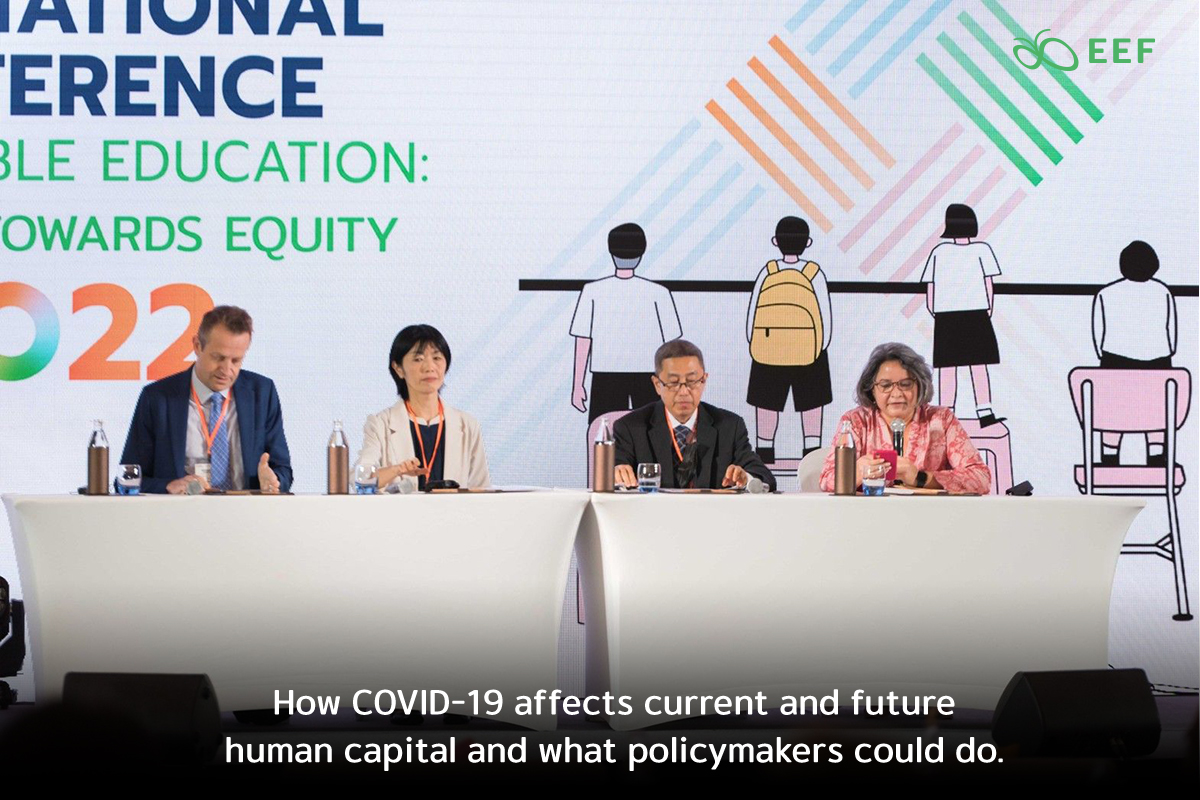
Mr. Lars Sondergaard, Lead Economist, Education, East Asia, and Pacific Region, World Bank Group, began this session by illustrating human capital lifecycle accumulation being lowered during the pandemic. Especially in the early stages of life, preschool to primary, the accumulation is very steep, which shows how important these stages are. The number indicates that, Even after the lockdown period, pre-primary school enrollment rates are not returning to the pre-COVID-19 level, especially for children from lower-income families.
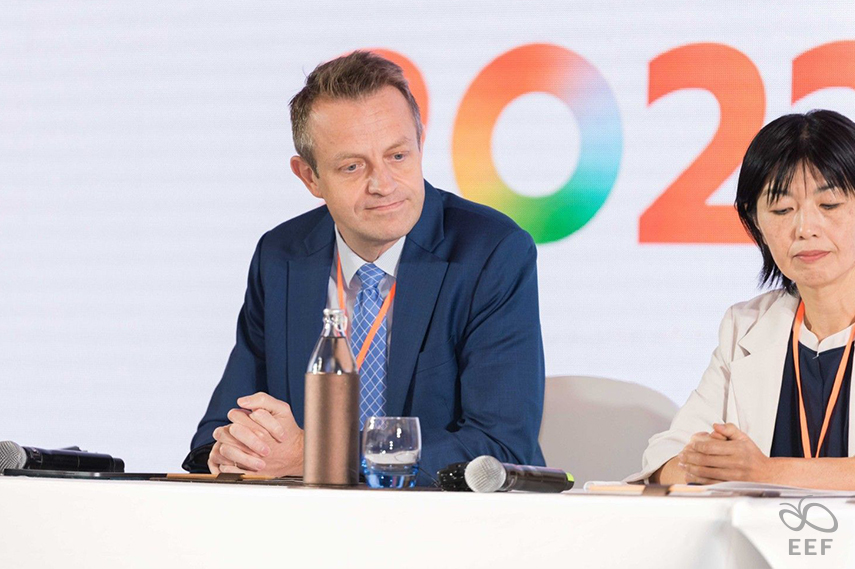
Mr. Lars M. Sondergaard, Lead Economist, Education, East Asia and Pacific Region, World Bank Group
Moreover, children have poorer mental health; 26% average increase in anxiety and major depression. This problem also happens in mothers’ mental health. Even in high-income countries, child abuse increases essentially, and children’s early development slows down during lockdown.
Moving on to the policymaker side, Mr. Sondergaard sets goals to make policies to close the gaps and not let problems amplify over time. As human capital accumulates over time, leaving these issues means slowing down the progress of children going to school and the labor market.
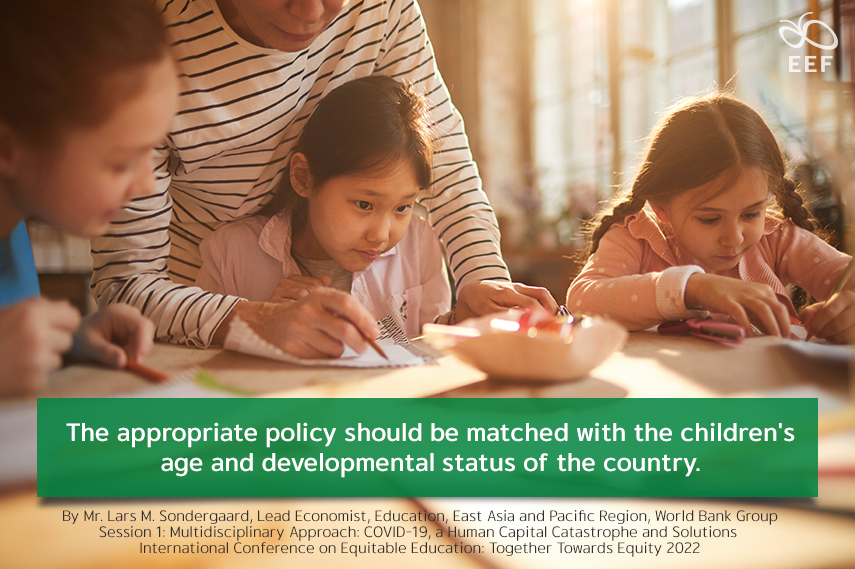
The appropriate policy should be matched with the children’s age and developmental status of the country. Mr. Sondergaard shows some examples as follows.
- For young children, targeted vaccination and nutritional supplements should be provided to help fully recover development and strengthen immunity. Mental health recovery is also needed by promoting more parent-child interaction and social-emotional support.
- For slightly older children aged 4 – 5, the schools need to be fully reopened, and expanding school coverage is also necessary. Governments may have to look to subsidize private providers as there might be extended closure during the pandemic.
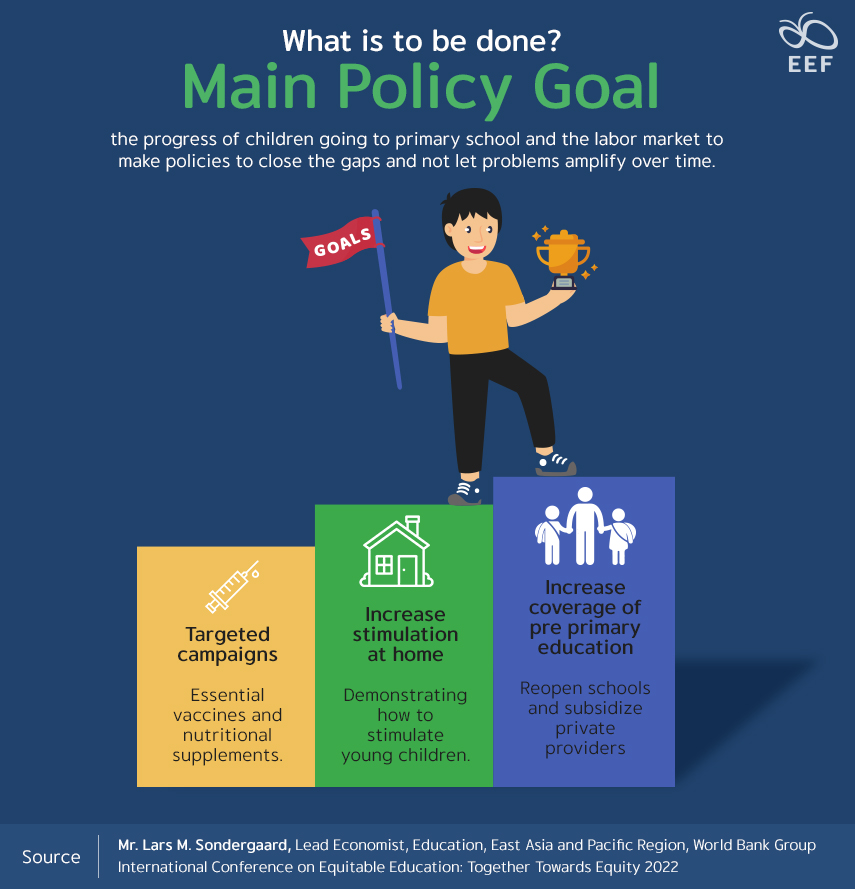
During school ages, even before COVID-19, children already lost 1-6 years of schooling due to poor education quality. The data shows that during school closure, students learn nothing and an example from Bangladesh shows that the children from more impoverished families lost the most; some even forgot what they’d learned.
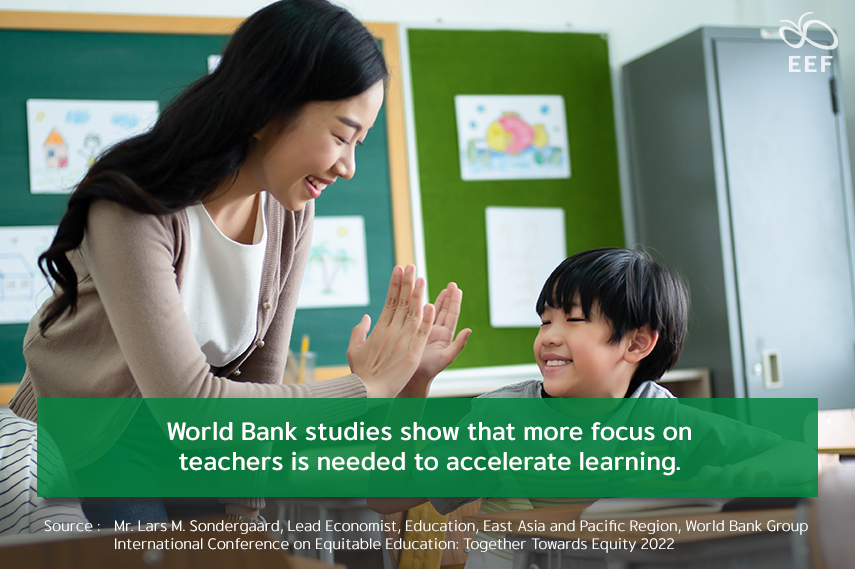
Mr. Sondergaard asked the forum to consider whether COVID-related loss or poor education quality is more severe. What should be more focussed on between recovering that loss or improving the education quality as a whole? World Bank studies show that more focus on teachers is needed to accelerate learning. Apart from poverty, the second most affecting factor in poor education is low-quality instruction. For example, in Lao PDR, only 8% of 4th-grade teachers got a passing grade on their math subject content.
Lastly, Mr. Sondergaard introduced and encouraged the forum to look at the RAPID framework, which is essential for learning recovery, and what needs to be done to accelerate learning.
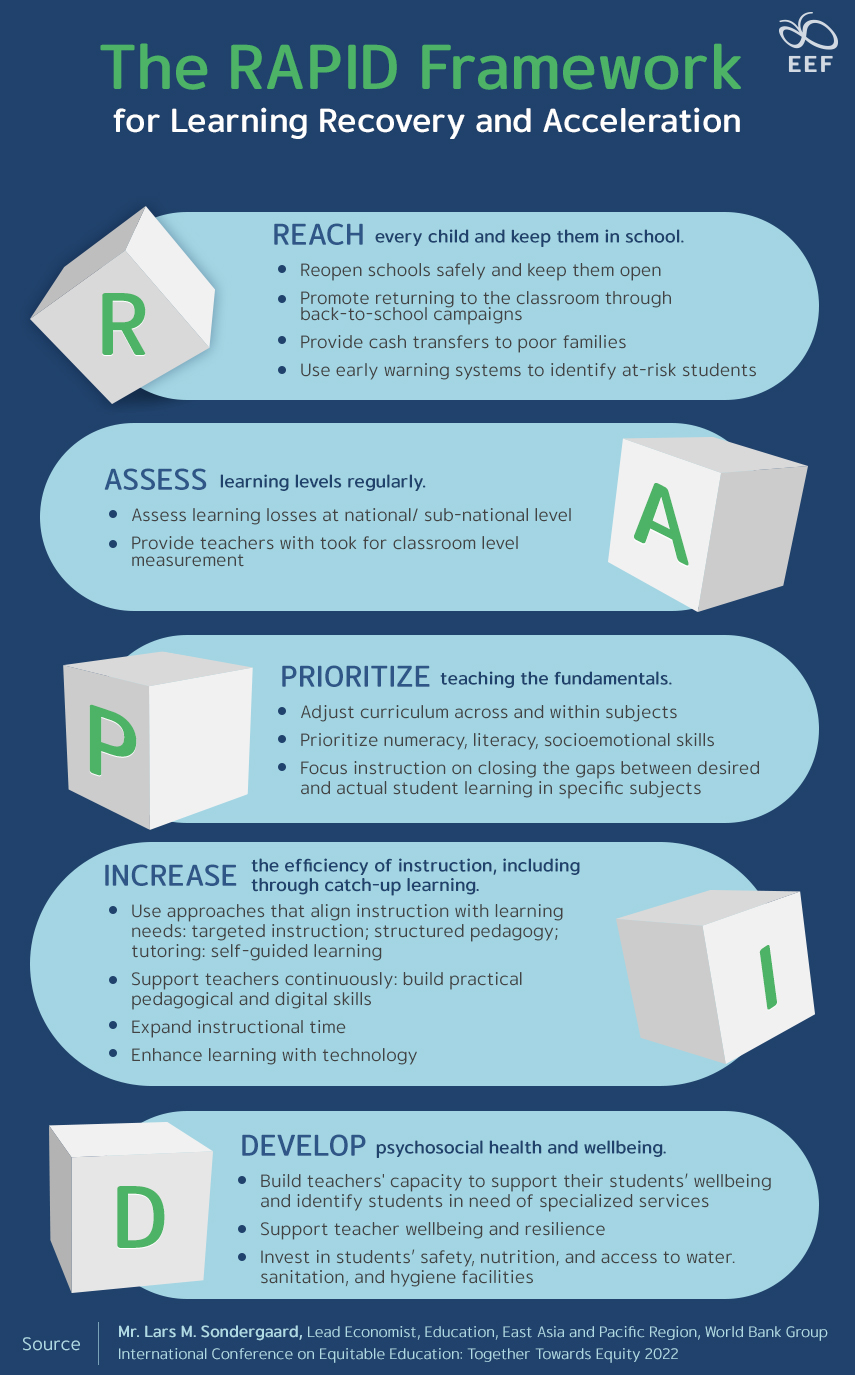
Source
International Conference on Equitable Education: Together Towards Equity 2022
Session 1: Multidisciplinary Approach: COVID-19, a Human Capital Catastrophe and Solutions By Mr. Lars M. Sondergaard, Lead Economist, Education, East Asia and Pacific Region, World Bank Group

